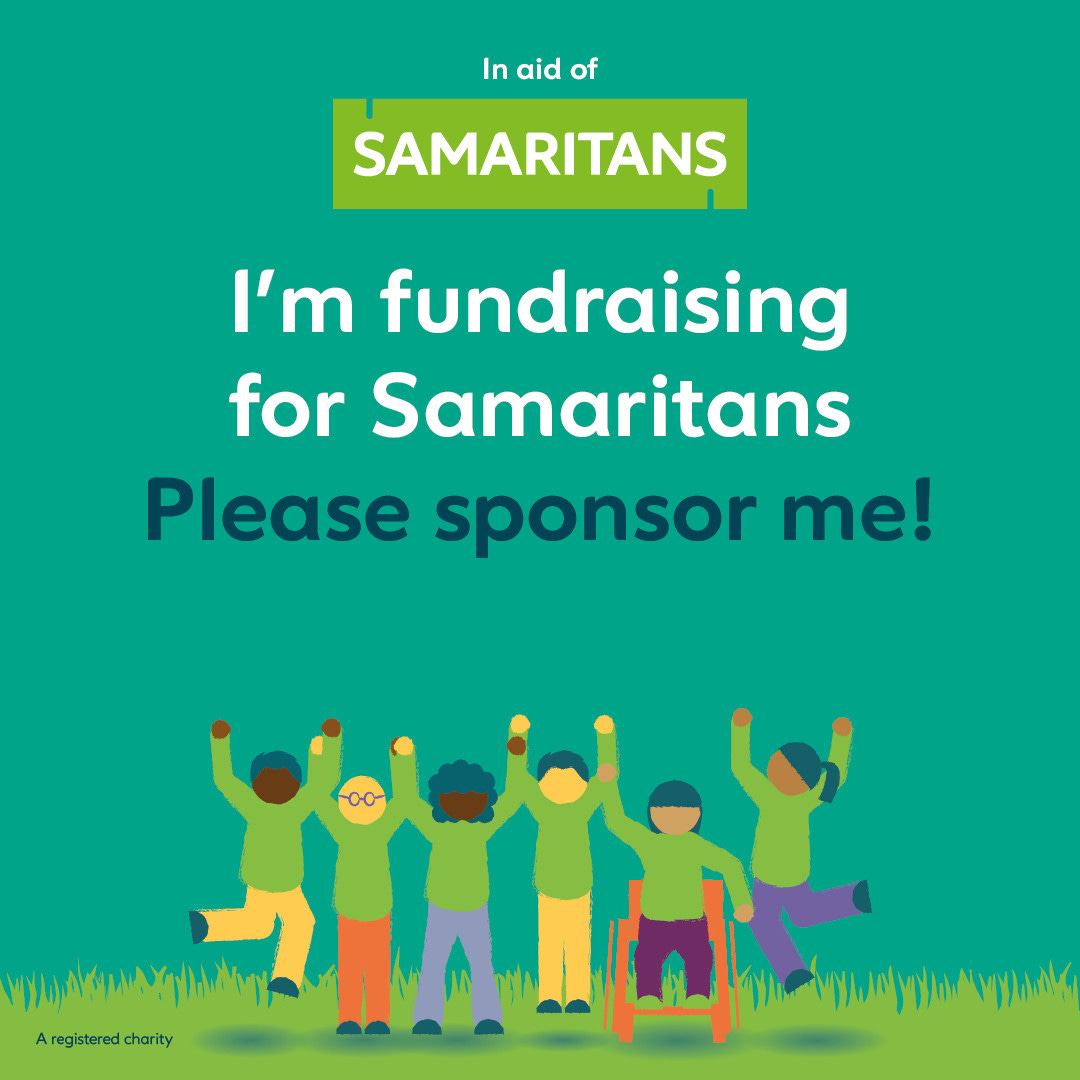Help me raise money for Samaritans
I am participating in the 24-hour Taylor Swift listening marathon because why be a Swiftie if you can't put it to good use!
I am taking part in the 24-hour Taylor Swift listening marathon to raise money for Samaritans on Samaritans Awareness Day, Thursday, July 24th. Samaritans is a charity close to my heart as someone who has called their helpline for support and as a person who has lost a loved one to suicide. My Dad died by suicide in 2019.
If you have a few euros to spare, I would appreciate your sponsorship – https://fundraise.samaritans.ie/fundraisers/pauladennan.
Why I am supporting Samaritans
I’ve lived with periods of depression and anxiety since my teens, before being diagnosed with bipolar disorder in 2016. A diagnosis that explained why the treatments I had previously tried for depression and anxiety didn’t work; we weren’t treating the correct mental illness.1 If you’ve followed me online or have been reading my writing for a while, you might remember the fact that I accidentally live-tweeted my way through an undiagnosed bipolar episode. While I didn’t realise what was happening and wouldn’t fully understand it until I received the bipolar diagnosis four years later, I phoned Samaritans for support multiple times because I knew something was off and needed someone to talk about it with.
I know Samaritans do vital work in supporting people who are struggling to cope – whatever the individual reason – living with a mental health condition, or experiencing suicidal ideation, because I am someone who received their support.
Where your money goes
Every donation, regardless of the amount, helps ensure that Samaritans continue doing the vital work of supporting people 24 hours a day, 365 days a year. Here is a small example of how your donations support Samaritans' work.
€10 helps cover the cost of a call to Samaritans’ helpline.
€30 helps Samaritans cover the costs of training, supporting and mentoring a listening volunteer.
€156 helps Samaritans cover the costs of recruiting and training a new listening volunteer to answer calls from people needing support.
Source: Donating to Samaritans – FAQs
Will I listen to Taylor Swift for 24 hours?
The short answer is yes. The longer answer is that sticking to an evening routine and getting enough sleep is central to managing my bipolar disorder, so I am splitting my listening across two days rather than 24 hours straight. I’ll be listening to Taylor Swift for 12 hours on Thursday, July 24th and Friday, July 25th.
I will be updating my progress on Thursday and Friday on Instagram stories. If you wish to follow along, you can follow me at @pauladennan. Don’t worry if you’re not a Taylor Swift fan, I’ll be checking in over the two days rather than live-streaming my Swiftie playlists!
In love and solidarity,
Paula
The way I talk about my mental health has changed over the years. This is partly because my diagnosis has changed, but also because how I talk about mental health in general has evolved. I have used mental illness here because that is my preferred term, but I understand that others prefer terms such as mental health condition or mental disorder. I’ve referred to bipolar disorder because that is its name, even though I’m personally not a fan of the word disorder as a way of describing people’s mental health. I usually just say bipolar. If I have ever spoken to you in person, I am likely to say manic depression. I know it’s an outdated term, but I think it does a better job at explaining the illness than bipolar does. Dr Kay Redfield Jamison writes about why she also prefers manic depressive illness as a term in her memoir An Unquiet Mind: A Memoir of Moods and Madness. Dr Jamison is a clinical psychologist who lives with manic depressive illness.




